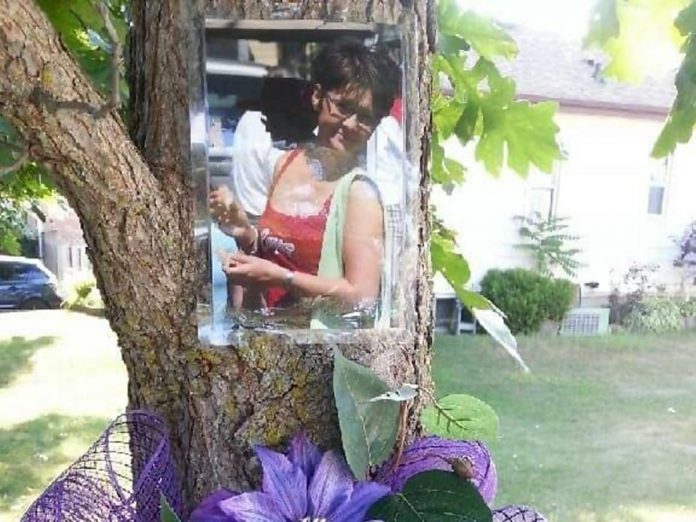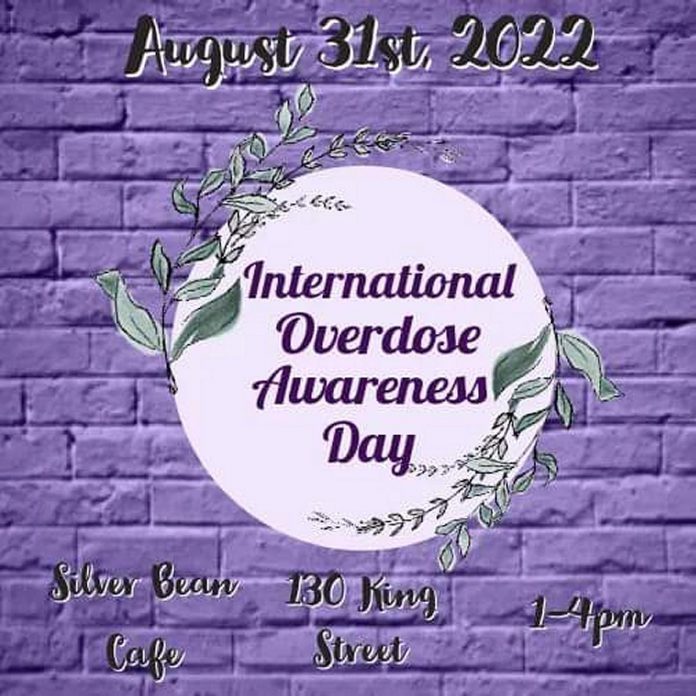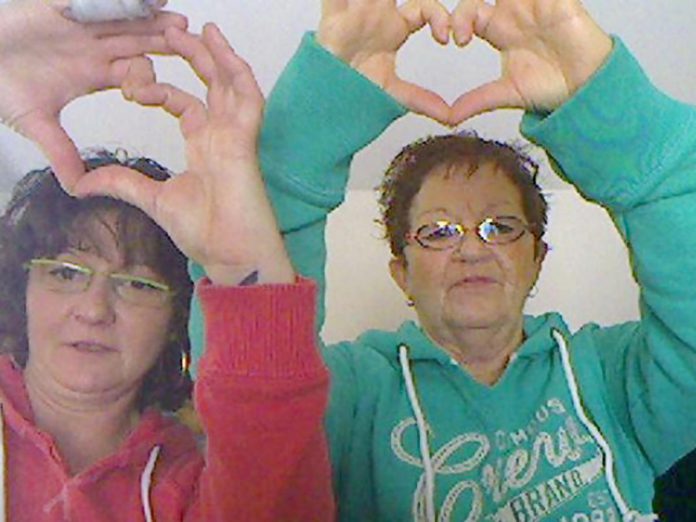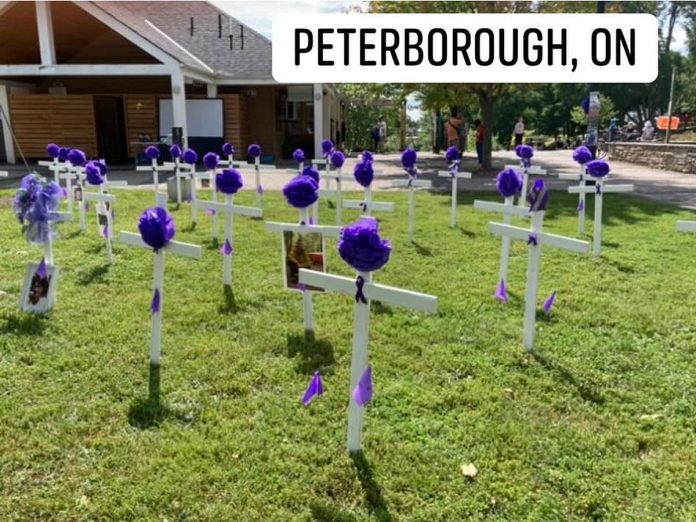
If Gail Parry ever questioned just how brutally hurtful people can be, the answer has been painfully provided time and time again.
As the mother of a daughter who died of health issues related to substance use, the Peterborough resident has suffered the brunt of people’s judgment of her daughter. In more than one case, that judgment has been expressed cruelly, deeply hurting a woman who simply misses her child very much.
“I don’t have the patience to argue with people anymore, or try and tell them it (substance use) is a disease,” says Parry, a member of Moms Stop The Harm, a network of Canadian families that, among other things, advocates for change as that pertains to failed substance use strategies and policies.
A prime example of what she has had to endure occurred at Peterborough Square, where she annually erects a white Christmas tree festooned with bulbs featuring the faces of local people who have died as a result of their substance use.
“A man stopped and said ‘They all should be taken out into a field and then shot in the head like a sick horse’,” says Parry, struggling to hold back her anger and her anguish.
“I said ‘These are our kids on this tree.’ Then he said it again. There are a lot of people that have judgment. It’s terrible. Ignorance equals stupidity.”
But such disturbing encounters have done nothing to deter Parry from her mission of advocating for change, not only as that pertains to people’s attitudes but also in terms of ensuring more mothers don’t have to lose what she has.
With the memory of her daughter Jody Smith front and centre, Parry has been the key organizer of local events associated with International Overdose Awareness Day held annually on August 31.

One of those events takes place from 1 to 4 p.m. on Wednesday, August 31st at Millennium Park adjacent to the Silver Bean Café, and will feature booths staffed by a number of agencies on the front lines of harm mitigation efforts, substance use education, and lifesaving training on naloxone administration.
The previous Tuesday (August 23), Parry will be present when flags marking International Overdose Awareness Day are raised first at Peterborough City Hall, where Mayor Diane Therrien will read the proclamation for International Overdose Awareness Day, and then at the Peterborough police station — the latter, believes Parry, being a first by any police service in Canada.
After that, posters promoting the August 31st event will go up at various locations, including at Peterborough Regional Health Centre in the emergency and intensive care departments.
Parry, whose contribution to the day includes making purple crepe-paper flowers — in memory of her daughter Jody — and attaching them, along with other grieving moms, to white crosses in the park, will this year also display a banner she made that portrays the faces of people lost to substance use.
“They need this to honour their children,” says Parry of those who grieve, adding that Moms Stop The Harm “unfortunately has new members every day” — a clear indication that deaths related to substance use are not remotely close to being prevented.
The group formed in 2015 when three moms — two in Edmonton and one from Pender Island, BC — came together out of a joint desire to speak out about the drug poisoning crisis.
VIDEO: “Stop the Harm: A Movement of Mothers Fighting to Save Lives and End Prohibition”
That initial discussion led to the formation of objectives aimed at ensuring substance users are not criminalized and that their rights are respected. In addition, the group supports a harm reduction approach that is both compassionate and non-discriminatory for people who use substances.
Moms Stop The Harm has two Facebook groups, one public and one private. Parry was initially active with the public group but, after Jody passed, she joined the private group.
Remembering her daughter Jody as “compassionate, kind, so non-judgmental, and a good mom,” Parry admits to not having moved on since Jody’s death — nor does she ever expect to.
“Jody’s life just spiralled apart when she was 32,” recalls Parry. “She had surgery. I thought ‘Oh good, she can come off the pain pills’, but it didn’t work that way. She had two girls. I had to take them.”
“She became addicted to pain medication, but I always believed she was dabbling in cocaine too. What really set things off was she received a large amount of money in back income tax and it all went on drugs.”
As one would expect, watching her daughter become more embroiled in substance use “was pure hell. You don’t know where they are. You don’t if they are alive.”
“There were times that she would come home and get her sobriety and work the program and do really good. The last time she came home was in 2013. She was on a waiting list for long-term treatment. She waited seven months and relapsed. She ended up meeting her boyfriend, who had a prescription for fentanyl. That went on for five years until she went into the hospital and passed away.”

Parry notes Jody’s health problems, which involved her heart, started much earlier in 2011 when she used cocaine cut with levamisole, a cattle de-wormer.
Close to four years after Jody’s death, people’s judgment of both her daughter and her substance use leaves Parry equal parts bitter and sad.
“I’ve had people say ‘Well, she made a choice,'” Parry says.
“Are you kidding me? I wouldn’t think of saying that to a mom who lost a child, whether it be because of substance use or drunk driving. At the hospital, when Jody was in a coma, I was told ‘You know she’s going to get right back out there and use again.’ Excuse me but you don’t know that.”
People need to stop and think, says Parry, noting any one of us could lose a family member or a close friend due to substance use — something she believes many substance users, Jody included, are predisposed to do.
Still Parry remains hopeful, her optimism buoyed by the establishment of the Consumption and Treatment Services site at King and Aylmer streets in the city’s downtown core.
“It’s great,” she says, adding “My daughter didn’t want to go to the hospital. A lot of substance users don’t because of stigma and judgment. They can go (to the CTS instead) and get some sort of help.”
However, the lack of safe supply access, notes Parry, remains an issue.
“Drugs now are so toxic,” she says.

While Parry agrees the Peterborough safer supply project launched this past May — overseen by Peterborough 360 Degree Nurse Practitioner-Led Clinic — is a start, it only has the capability at this point to supply 50 users with an alternative to the poisoned drug supply. Another challenge comes with how some users are taking substances.
“There’s a lot of inhalation now with fentanyl, so there’s a lot of overdoses — not too many inject,” she points out. “If you go to safe supply, there’s big waiting list. You have to either inject it or snort it or swallow it. People aren’t going to inject because they stopped injecting, so they smoke it. We’d like it set up (the CTS) for inhalation too but that has to come from Health Canada. More work needs to be done there.”
Moms Stop The Harm, says Parry, will continue to advocate for change in these areas and others, declaring, with a united voice, that “All of these deaths (from substance use) are preventable.”
“Our governments could do something about this. We saw how quick our governments got into action with COVID, so we know it can be done.”
For more information about Moms Stop The Harm, including its core objectives and a photo gallery of members’ loved one who have passed, visit www.momsstoptheharm.com. To access the group’s public Facebook page, visit facebook.com/MomsStopTheHarm.


























